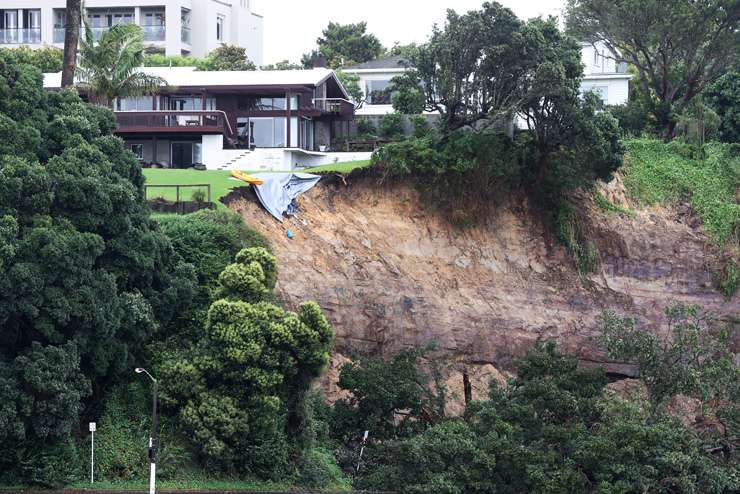Letting agents are reporting a huge increase in demand for rentals – including scarce furnished properties – as people leave flood-damaged homes.
There’s also an increase in demand for luxury rentals in Auckland after the floods impacted higher-end suburbs such as Remuera.
Adam Thomson, director of Ray White 360 Property Management, says his letting agents say nine out of 10 people looking at rental properties have been affected by floods.
There are also reports of some landlords taking advantage and hiking prices while others are compassionate and happy to help accommodate people in need, he says.
Start your property search
Thomson, whose agency manages properties around Auckland, says over the past year the vacancy rate has reduced anyway, from 2.3% to 1.8%, but demand has further soared since the recent weather events.
Days on market has also shrunk from around 15 days six months ago to six days.
“Generally they would do four or five viewings on a property on average – now they’re doing between one and two and renting it.”
Read more:
- Flood damage: What are your legal rights?
- What happens if your home gets hit with a red sticker?
- The 'cliff is gone and they are hanging on by a thread'
Displaced people are looking outside their own suburbs to find a property that suits them: “If they need a fence, they need a fence sort of thing.”
Demand for furnished properties is “massive” because people have lost so many possessions but that is a difficult situation because in Auckland furnished properties are much rarer than non-furnished and the market cannot meet the demand overnight.
A minimum level of furnishing includes whiteware – a fridge, washing machine and dryer – while a fully furnished property contains everything down to the sheets and knives and forks.
“Apartments are often furnished but in general homes in the suburbs are not normally furnished,” Thomson says.
Furnished properties also cost more. The average rent on the agency’s portfolio is $602 a week but a furnished property adds another 10-20%.
Another sticking point agents are seeing is that most flood-affected people are looking for six-month tenancies while they get repairs carried out but landlords generally want a year or more fixed term, he says.
“We've encouraged our owners to consider shorter-term tenancies due to the situation, and a lot of people think it's going to be six months (while homes are repaired) but that can easily blow out to 12 or 18.”
Rents for luxury rentals range between $2500 to $5000 a week with demand so high those properties are rented quickly.

Vacancy rates in Auckland are tightening, with the recent floods leading to a spike in demand. Photo / Getty Images
Thomson says the luxury rental demand predates the floods with people coming home from overseas but the demand has definitely increased since the floods.
Advice on getting a property includes people letting landlords and property managers know their story and to not leave blanks on forms.
“To be able to put yourself forward for something you need to be able to explain your situation and give them a bit of background as well as references.”
People should also be prepared to act quickly, and those with pets should if possible provide a pet reference along with information around the type of pet and a photograph.
“You could do just a bit of a bio really on what it is. Instead of just saying you've got a dog, like how old, how long have you had it, where did it sleep, that sort of stuff, has it been to puppy school.”
If someone has bad credit, the key is to show whether it has been rectified.
“If it’s outstanding and it was over rent, stuff like that, then that's bit of a problem but if it was, say, a phone bill or a power bill or something that's been settled and cleared up then it's not the end of the world.”
Zac Snelling, Ray White’s head of property management, says around the country property staff are focussing on people most in need, some of whom have lost everything.
There was already a shortage of three or more bedroom family homes with demand exceeding supply.

Demand for furnished properties is “massive", report agents. Photo / Fiona Goodall
Snelling says he conducts a monthly survey and for January just over 79% of offices said they did not have enough properties to satisfy demand.
That demand is now combined with many tenants in different parts of the country being displaced with a significant number of properties now inaccessible and uninhabitable.
“That’s going to really cause some issues. Our focus now is helping those tenants most in need.”
An unfortunate new trend as a result of the recent disasters is people who have not rented for many years having to now find somewhere to rent while repairs are carried out on their homes, he says.
Some will probably have to be flexible in terms of their requirements or property needs, be that location or bedroom size.
“Maybe choosing a townhouse or an apartment as opposed to a house, or having a two-bedroom instead of a three-bedroom even though it's going to be tight for a little while.
“We're hearing situations, too, of some people looking at grouping up with friends and cohabiting where they wouldn't have done so before just to get somewhere.”
Tips on finding a rental in a tight market
- If filling out online forms, provide all the information that is asked for - don't leave blanks.
- People who can move in without having to give 28 days notice on their current house can have an edge.
- People who can sign up for a year as opposed to six months could also have an edge.
- Provide references for yourself and also for your pet.
- Sell yourself/tell your story.
- People starting out flatting who don’t have references can still supply character references or from employers.
- People with a bad credit history should explain why and what they have done to rectify matters.
------
Cyclone Gabrielle: Click here to donate to the New Zealand disaster fund















































































